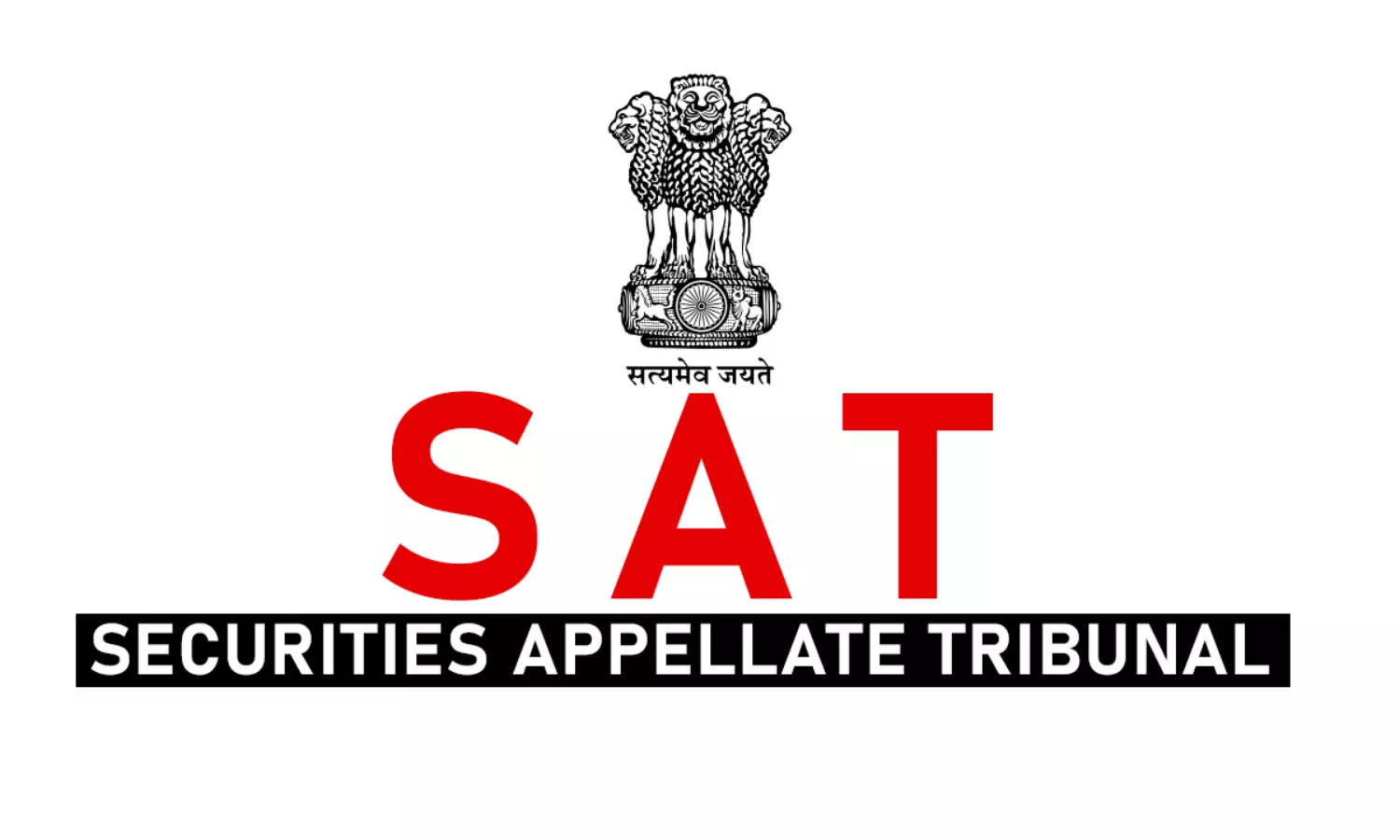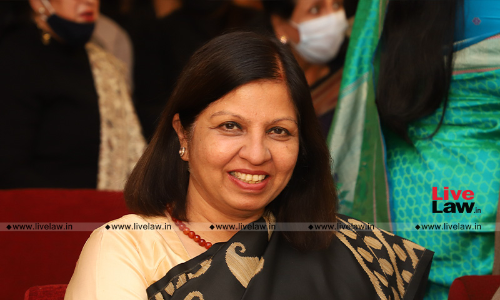
On 29th December 2023, Hon'ble Justice Tarun Agarwala (“Justice Agarwala”) retired and demitted office as the Presiding Officer (“PO”) of the Securities Appellate Tribunal (“SAT”), that hears appeals against orders passed by the Securities and Exchange Board of India (“SEBI”), the Insurance Regulatory and Development Authority of India and the Pension Fund Regulatory...
On 29th December 2023, Hon'ble Justice Tarun Agarwala (“Justice Agarwala”) retired and demitted office as the Presiding Officer (“PO”) of the Securities Appellate Tribunal (“SAT”), that hears appeals against orders passed by the Securities and Exchange Board of India (“SEBI”), the Insurance Regulatory and Development Authority of India and the Pension Fund Regulatory and Development Authority. The retirement of Justice Agarwala left the functioning of SAT with one technical member against the strength of at least one judicial member and one technical member on each bench under Section 15L of Securities Exchange Board of India Act, 1992 (“SEBI Act”).
The functioning of SAT with only one technical member raises some important concerns. This article provides a brief overview of the situation, and addresses legal concerns, such as what are the limits, if any, on the powers of SAT without a judicial member, and what is the remedy in cases of urgent situations, such as where an ex parte interim order is passed by SEBI.
This is the first question that needs to be answered regarding the functioning of SAT. In the case of State of Gujarat v. Utility Welfare Association, the Hon'ble Supreme Court of India (“Supreme Court”) was faced with a question - whether it is mandatory to have a judicial mind presiding over State Electricity Commissions and Central Electricity Commissions. While deciding the above case, the Supreme Court referred to Section 112 of Electricity Act, 2003 (“Electricity Act”) which provides that the bench of Appellate Tribunal for Electricity may be constituted by two or more members provided that at least one should be a technical member and one judicial member. Regarding this provision, the court observed that it is mandatory for each bench of APTEL to have at least one judicial member and one technical member and held that “it is mandatory for any bench performing adjudicatory function to have at least one person who is or has been holding a judicial office or is a person possessing professional qualifications with substantial experience in the practice of law and who has the requisite qualifications to have been appointed as a Judge of the High Court or a District Judge.” Similarly, in KK Agarwal v. Sanjiv NandanSahai, the Supreme Court, also categorically held that “any forum / commission /tribunal carrying out an adjudicatory function cannot be permitted to function without a judicial member”.
Section 15L of SEBI Act is pari meteria to Section 112 of Electricity Act. Therefore, it appears that the observation and ratio of the Supreme Court in the above-mentioned case may also be relevant to the current state of affairs of SAT, having only one technical member on its bench.
It is also interesting to note that in the context of the Competition Commission of India (“CCI”), which although is not a tribunal in the strict sense, but also performs adjudicatory functions under the Competition Act, 2002. The Delhi High Court in the case of Mahindra Electric MobilityLimited & Anr. v. CompetitionCommission of India, held that the CCI can discharge procedural functions by giving reasons, without the presence of judicial member such as issuing directions for filing of replies, extension of necessary timelines etc. However, the presence of a judicial member was necessary for passing final orders. The above decision of the Delhi High Court was also followed by the National Company Appellate Tribunal (“NCLAT”) in the case of Google Inc. & Anr. v. CCI & Ors. The decision of the Delhi High Court as well as NCLAT are pending in appeal for consideration before the Supreme Court.
While the decision of the Supreme Court is pending in relation to adjudicatory functions being discharged by regulatory bodies, the stance of the Supreme Court in relation to presence of a judicial mind on the benches of tribunals is amply clear.
Whether SAT can pass any order without a judicial member in case of urgency?
Given that tribunals cannot adjudicate without the presence of a judicial member, this section of the article examines the remedies available to litigants in in cases of urgency.
Interestingly, this question also came up before the Supreme Court in the case M/s. QuantumSecurities Private Limited v. M/s. Vishvapradhan Commercial Private Limited& Anr. since the bench of SAT was constituted of only one technical member at the time. In the said case, the technical member had passed an interim order directing SEBI not to take any coercive steps against Vishvapradhan Commercial. Aggrieved by the said order, Quantum Securities, one of the minority shareholders of Visvaprdhan Commercial preferred an appeal to the Supreme Court against SAT's order on the basis that the order was passed in the absence of a judicial member. However, by the time the appeal came up for hearing before the Supreme Court, Justice Agarwala had already been appointed and SAT was fully functioning. Given the same, the Supreme Court disposed of the appeal as infructuous and directed that all questions on facts and law may be raised before SAT on a fixed date. Therefore, while the Supreme Court did not explicitly decide on the capacity of an appellate tribunal to pass orders in urgent cases in the absence of a judicial member, it did not strike down the single member SAT's order either.
In another case before the SAT, Axis Bank v. SEBI & Ors., a situation arose where the technical member of SAT had retired and the SAT was functioning only with one judicial member, a technical objection was raised by SEBI, that SAT cannot proceed to hear appeals in absence of a technical member. SAT held that “upon a harmonious construction of the relevant provisions of the SEBI Act, we are of the confirmed opinion that the functioning of the Tribunal presently comprising of a Presiding Officer and a Judicial Member is not defective on account of non-availability of Technical Member and that the Bench constituting the Presiding Officer and Judicial member can proceed to hear and decide the appeals, etc which are filed before the SAT”. In coming to this conclusion, the SAT relied on the judgement of the Delhi High Court in the case of MylanLaboratories Limited v. Union of India & Ors., wherein the post of technical member was vacant and the Trademarks Appellate Tribunal could not hear matters as Section 84 of the Trademarks Act, 1999. Notably, Section 84 of the Trademarks Act, 1999 provides for the composition of the Appellate Tribunal and requires it to consist of one technical member and one judicial member. The Delhi High Court invoked the doctrine of necessity and held that the Appellate Tribunal can proceed to hear urgent matters and they would not suffer from any invalidity on account of lack of quorum.
The doctrine of necessity has been explained by the Supreme Court in the case Election Commission of India v. Dr. Subramaniam Swamy., as a legal principle that allows one to do certain things as a matter of necessity which otherwise would not be permissible. It was further held in the above case that if the doctrine of necessity is not allowed in certain unavoidable situations, then it would impede the justice itself and the defaulting party will benefit therefrom. It was further held by the Hon'ble Supreme Court, in plethora of cases, that the doctrine of necessity should not be applied in a regular course as it would defeat the rule of law. In view of the above, that the doctrine of necessity can be invoked to allow SAT to adjudicate appeals in urgent cases where the appellant would be irrevocably prejudiced by an order passed by SEBI, IRDAI or PFRDA, as the case may be.
Again, while this was not a ruling on the absence of a judicial member, reading this judgement along with the judgments of the Delhi High Court and NCLAT cited above, it may hold some insights on the powers of an inadequately staffed appellate tribunal to rule in times of emergencies.
In our view, as on date, it is a settled position that the tribunal cannot perform any adjudicatory function without the presence of a judicial member. However, in emergencies, there may be an argument for SAT to continue to pass those orders which do not finally determine the rights and obligations of the parties. The Supreme Court in catena of judgements has noted that intention to create tribunals is to resolve the disputes in a timely manner with the assistance of experts. The functioning of the tribunal without the presence of judicial members on its bench, defeats the very object of creation of tribunals, as they cannot function at all.
The authors are Securities Law Practitioners. Views are personal.




